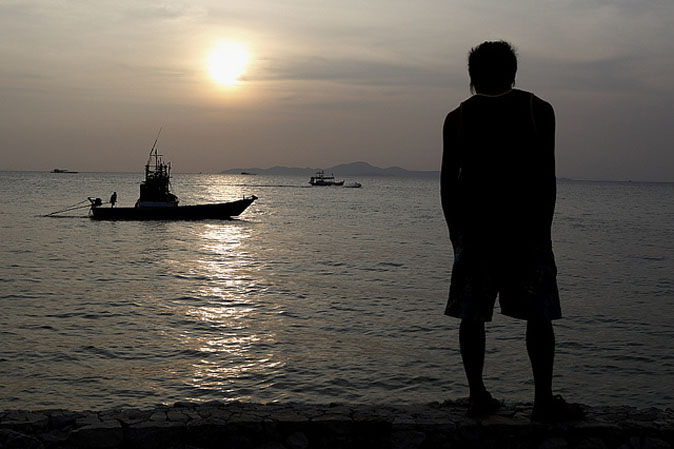On its way to your plate, one fillet of delicious fish means psychological coercion, forced labor and physical abuse to Thailand’s fishers.
I had never paid attention to these details before, until one day when I was inspired by the documentary Seaspiracy, which, despite its flaws, persuaded me to do further research and discovered numerous facts regarding the fishing industry’s systems.
Although there are other sources of protein, fish is considered the primary source for the majority of Thailand’s population, especially those in coastal areas. It adds up to nearly 40 kilograms of fish per person each year, eclipsing other animal-based proteins such as pork, beef and chicken.
In order for Thai fishery companies to meet this soaring demand, their owners are not only hiring workers with extremely low wages but also abusing them physically, forcing them to perform their tasks on the sea.
I was shocked to find out that it is a very common practice and human trafficking of workers is not only taking away the rights of individual to choose their own path and make decisions based on their needs, but those owners of the companies are taking advantage of other people’s weakness whether it is their financial status or nationality.
Although policies have been implemented to help identify illegal practices and instances of forced labor, the rate of inspections remains very low and workers are rarely granted confidential interviews when suspicions are raised. A lack of staff in Samut Sakhon province – Thailand’s cannery row – means only five or six of thousands of boats are inspected per day. Since they were implemented, these Port‐In and Port‐Out, or PIPO, inspections have somehow not identified a single case of forced labor.
Laborers in the fishing industries are required to work at least 20 hours a day with little pay. They experience physical abuse and threats of violence on the boats and at port. They are forced to be out on sea for at least five months and, if they neglect their work, may be beaten and – in the worst documented cases – thrown overboard.
Learning about modern day slavery in the fishing industry made me look deeper to understand the bigger problem that forces people to opt for slavery. And that is the gaping inequality in Thailand. Fishers who are being exploited in the industry live far beyond the poverty line. They do not even have any means to earn a living and support their families. What they have known is just going on the ocean and catching fish in exchange for some money.
In one case documented by Human Rights Watch, a Burmese man became enslaved after migrating to Thailand after a friend encouraged him to take a construction job. However, when he arrived, he had to stay at a port and was told that he had been sold for THB16,000 (US$490) to work on the sea.
Illegal fishing depletes fish populations in coastal areas, causing fishers to go further to make a catch. This leads to increased fuel and labor costs, but most significantly, it makes it easier to engage in harassment and abuses. Legally, workers should be paid overtime, but there is no such thing if they work over 20 hours. Without legislation and enforced regulation, labor costs are the easiest factor to cut from the whole production chain, creating an incentive for modern slavery. This is unacceptable and needs to be immediately addressed by the whole country.
I’ve started my own small awareness campaign with Not Mean, Just Green, where I share vegan recipes. While one vegan meal can’t save the oceans from overfishing or end slavery, it can be the start of a bigger commitment. I’m not asking for people to completely stop eating fish but to be aware of where exactly the food they eat comes from, and consider reducing consumption. It’s healthier, too.
There are also a few organizations doing something to help, and they need our help. I am raising funds for Oxfam in Thailand, which has a number of projects dedicated to tackling worker exploitation in the fishing industry. Help me reach THB25,000 by supporting their work via my campaign on Weboon, a Thai platform for charitable causes.
Natamon Kangsumrith is a junior at NIST International School in Bangkok with a proactive attitude about initiating projects that help the environment, such as reducing plastic consumption and saving the marine ecosystem. She is the founder of ‘Not Mean, Just Green,’ which promotes a vegan lifestyle.



